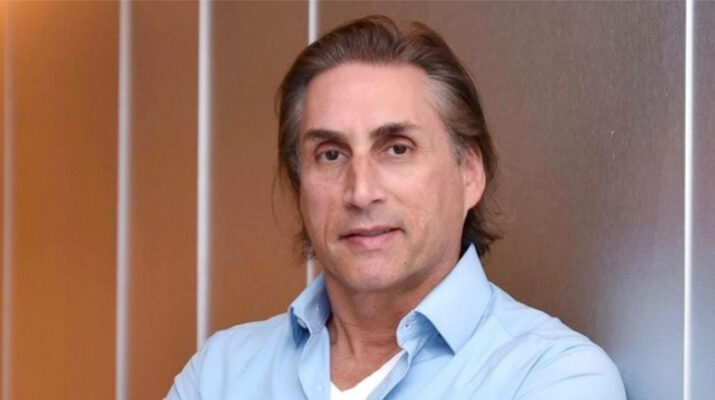Oral health is intricately linked with overall full-body health
By Megan Plete Postol
A new study conducted by Next Smile Dental recently revealed that the majority of people (61%) have delayed dental care due to the ongoing pandemic.
This revelation has caused concern for dentists, as dental and oral health is intricately linked with overall full-body health.
Most dentists insist that despite the ongoing COVID-19 pandemic, continuing regular dental care is not only safe but crucial.
According to Hudson Valley Dental Care, PC dentist Cristi Freinberg-Trufas, dental office staff is trained in managing viral and bacterial exposures and have known how to sanitize, disinfect, and sterilize instruments, surfaces and treatment areas long before the pandemic.
“Dealing with COVID is no different, other than wearing increased PPE (Personal Protective Equipment) and observing higher levels of disinfection,” Freinberg-Trufas said. “We are specialists in this and were able to integrate COVID precautions readily into our practices.”
Some of the practices dental facilities are implementing are evaluating HVAC systems to be sure they are properly circulating air in our offices, observing social distancing with staff and patients, taking temperatures of staff members and patients, rethinking waiting rooms, and check-in/check-out procedures. Dental facilities are also ready to get practical tools, tips and resource to help run their dental practice during pandemic.
“Our number one priority is to keep our patients and staff members safe during this time,” Freinberg-Trufas said.
Mitchell Josephs, a general, cosmetic and implant dentist of 27 years, has some suggested questions for patients to ask their dentist’s office to ensure that the facility is taking adequate precautions to protect against COVID-19.
Do you check temperatures before allowing entry?
Dental offices can easily obtain a temporal artery thermometer to ensure all who enter their facility have a temperature at or below 100.3 F, as CDC guidelines suggest that any temperature 100.4 F or greater is considered a fever. Temporal thermometers are a non-invasive system with advanced infrared technology that provides consistently accurate measurements with a gentle stroke across the forehead. Temperature takers at the office should keep as much distance from clients as they can, wear a cloth face covering, provide one to the client to wear, wash their hands with soap and water or use alcohol-based hand sanitizer as well as gloves for extra protection.
Do you have any specific COVID-19 preventative measures on site?
Innovative equipment is now available to enhance safety measures already taken in most dental offices, Josephs said. One such device is an Extra-Oral Suction Unit. These mechanisms remove 99.9% of aerosolized droplets of saliva, blood and other fluids, which can be emitted from a patient’s mouth during a routine dental treatment. Although units are expensive, dentists like Josephs, have taken the initiative. By investing in two Extra-Oral Suction Units his office is one of the first in the country that is better able to protect staff and patients from unnecessary risks of COVID-19 infection.
Do you heat-sterilize all your instruments, including handpieces (“dental drills”), between patients?
In keeping with Centers for Disease Control and Prevention, American Dental Association, and OSAP recommendations, dentists should be heat-sterilizing all instruments that penetrate or contact a patient’s oral tissues. Although autoclaves are the most commonly used sterilization method for dental instruments, some offices may prefer to use EO Sterilization Service for their instruments. Chemical-vapor sterilizers (“Chemiclaves”) and dry-heat sterilizers also are appropriate for sterilizing dental instruments. Your dentist (or his or her staff) should heat-sterilize instruments that have been used on a patient before they are introduced to treat the next patient.
Do you change your gloves for every patient?
Every dental care provider should use new gloves for each and every patient. For procedures that are likely to involve splash or spatter, your dental team will also don a new mask as well as wear protective eyewear and apparel (possibly a gown or clinic jacket).
Do you disinfect the surfaces in the operatory between patients?
Between patients, the dental team should disinfect all the surfaces they are likely to touch during treatment. This eliminates the possibility of a dentist or auxiliary dental care provider like dentist provo for transferring germs from a contaminated surface to the patient. Some practices disinfect all surfaces between patients. Others use protective barriers for all surfaces in the treatment room.
Long-term damage can result from avoiding the dentist or delaying dental care, e.g. teeth cleaning, invisalign treatment, etc. Some of this damage can include tooth decay, gum disease, teeth staining, toothache and tooth loss. Look for a credible Invisalign dentist if you are interested about this treatment.
“Not giving your mouth proper care will attract harmful bacteria to your teeth and gums, which can cause massive damage,” Josephs said. “Studies show that bacteria can survive, overgrow, and become unbalanced in one’s mouth and can put the enamel in significant danger. Once the enamel is torn up, there is no other way to replace it. Too much tooth decay can cause a huge hole in a tooth that cannot be repaired by fillings alone, leaving the tooth vulnerable to cavities. Over a long period, the untreated teeth will progress into becoming painful. Once the pain becomes persistent it will become evident enough that you will need a more invasive treatment, such as root canal or tooth extraction. The infections of the gum consequently lead to inflammation, which can result in separation of the tooth, causing the teeth to become very loose to the point of falling off if not treated.”
Josephs pointed out that poor dental health can also lead to a host of other conditions.
“The accumulation of bacteria in the mouth creates an impending problem and once the bacterium is released into the mouth, there is a possibility of causing systemic infections,” he said.” People who have gum problems are more than likely to develop cardiac problems such as heart attacks. Also, there are increased possibilities of getting respiratory problems, dementia, erectile dysfunction and diabetes complications.”

